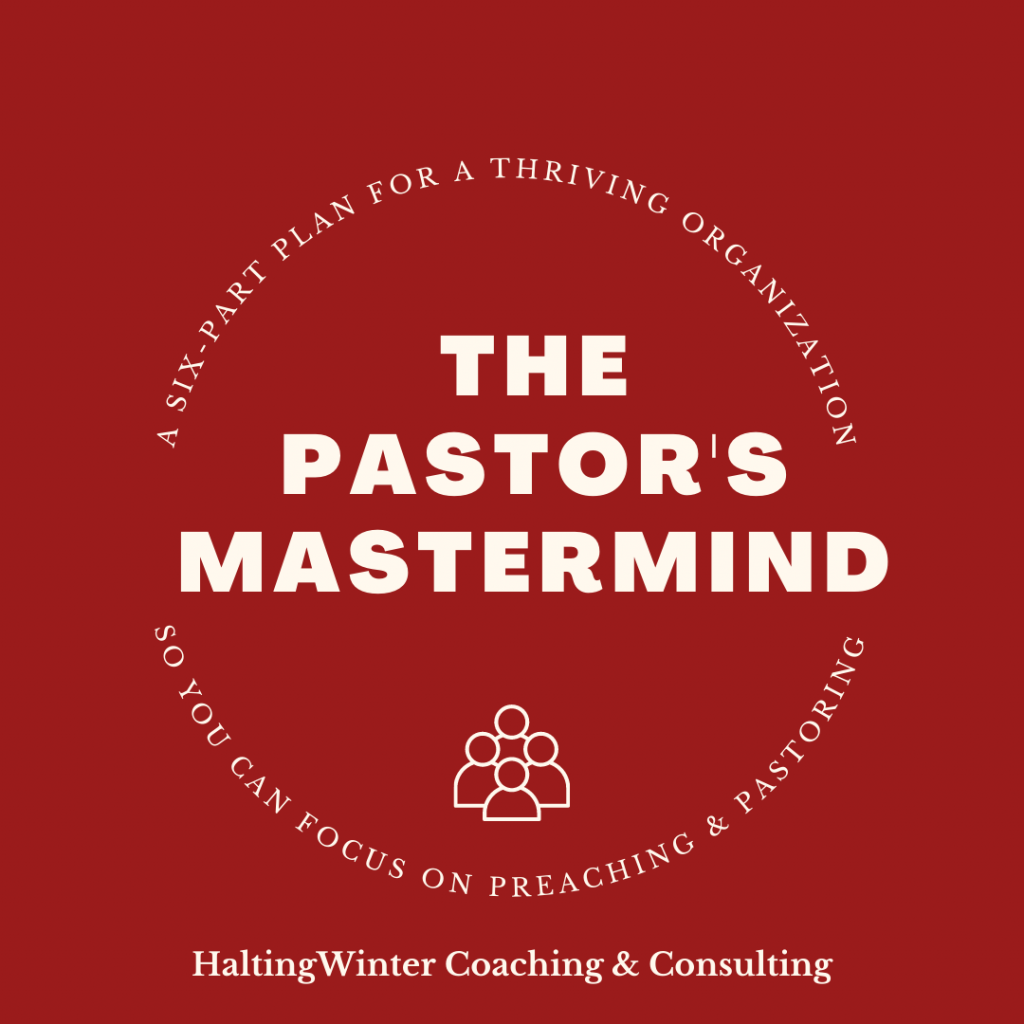
Every week, you’ll get insights and actionable steps to develop yourself physically, mentally, and emotionally
Here’s our Summer 2024 book list curated by Seth Winterhalter, President of HaltingWinter, specifically for leaders of mission-driven organizations. You’ll find books on leadership development, communication, and culture that we continue to draw insights from to use in our workshops and personal coaching. Send Seth a DM on LinkedIn and let him know what book has helped you in your leadership that you’d add to the list!
Hear key insights drawn from the book to help you grow the six primary parts of your business in order to increase your revenue, profits, and impact.
We are launching a new Mastermind for business owners who are trying to solve the problem of growing their business and their revenue while currently feeling stuck in the weeds of keeping everything staying afloat and not knowing which specific steps to take. Over the course of this six-month mastermind, we will help you create a clear mission to tackle, a captivating message to draw a bigger audience, and a compelling SalesScript to close more customers. Our goal is to increase your revenue by 25% during the mastermind and see your revenue increase 100% over the year. Learn more about the Revenue Accelerator Mastermind at this link: The Revenue Accelerator Mastermind

Whether you’re a business owner or a director of a non-profit, we all will face seasons of stress and overwhelm as we try to grow and scale our organizations. Being a part of a mastermind is a guaranteed way to get out of that season faster and get back to finding joy in your work and success in achieving your goals. A mastermind gives you a community of people who share commonalities and are able to give feedback, insights, and encouragement that you wouldn’t find by yourself. Click on the box that applies to you and learn more about the masterminds that HaltingWinter offers to help you solve your organizational problems and headaches so you can get back to enjoying your work and life.


How often do you get to Friday and become overcome with frustration that you didn’t get what you wanted to accomplished?
In this episode of The HaltingWinter Podcast, Seth Winterhalter walks through the 5 steps to making sure you own your week and set it up for success toward the things that are most important.
For personal coaching or corporate consulting, reach out to us at: https://haltingwinter.com/
Who’s writing the story of your life? Is it you or are you letting others write your story?
In this episode of The HaltingWinter Podcast, Seth Winterhalter discusses a topic Donal Miller writes about in his book, “Hero on a Mission” on the story your life is writing. Seth looks at three things that keep us from writing our own story with intentionality and confidence.
For personal coaching or corporate consulting, reach out to us at: https://haltingwinter.com/
For Donald Miller’s book, “Hero on a Mission”: https://amzn.to/3MulnpY
How many times have you stressed out thinking about how to create more balance in your life? Life shouldn’t be a high-wire walk with you anxious and worried you’re going to drop all the balls you’re juggling while you fall to your death. On this episode of The HaltingWinter Podcast, Seth Winterhalter discusses why he thinks balance is overrated and why living with a different image in your mind when it comes to the various aspects of your life might be more helpful in keeping you intentional and inspired with your actions.
For personal coaching or organizational consulting: https://haltingwinter.com/
What’s the buzz about “Quiet Quitting” happening across workplaces? What does this say about employees and employers? Seth Winterhalter shares some thoughts and concerns about what this distorted practice reveals about a company, its leaders, its culture, and its employees.
For Coaching or Consulting: https://haltingwinter.com/
What do an effective executive and a conductor of an orchestra have in common? More than you might think. On this episode of The HaltingWinter Podcast, Seth Winterhalter looks at the lessons of his past as the conductor of the Capital Philharmonic Orchestra and how the lessons he learned helped him be a more effective executive in the businesses and organizations he has led.
For personal coaching or organization consulting: www.haltingwinter.com
In this episode of The HaltingWinter Podcast, Seth Winterhalter looks at the warning signs and effects of burnout. If you are experiencing these feelings or physical symptoms, do something about it. Talk with a friend, meet with a counselor, or schedule a call with a coach.
We need you in the game. We need you thriving. If you’re breathing today, then your life has a purpose. I want you to not only find your purpose but tie it to your deepest passions.